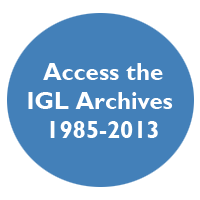EPIIC 2016 Overview
The Future of Europe
EXP 0091F
Tuesdays and Thursdays, 3:00-5:30pm
Bi-monthly Discussion Sessions TBA
EPIIC is open to undergraduate and graduate students of all majors.
EPIIC coursework can count toward credit in many majors.
Full Credit /Letter Graded
All interested students must come to the first class on Tuesday, September 8, Crane Room
EPIIC Weekend Immersion
October 2-4, 2015
Outward Bound at Appalachian Mountain Club,
Pinkham Notch, New Hampshire
This is a weekend of teambuilding and lectures with INSPIRE Fellow: Mitchell Orenstein, Professor of Slavic Languages and Literatures, University of Pennsylvania.
Description
“A united Europe is not a modern expedient, be it political or economic, but an ideal which has been accepted since thousands of years by the best spirits of Europe, namely those who can see into the future. Already Homer described Zeus as ‘europos’ – an adjective meaning ‘one who sees very far’.
– Denis de Rougemont, Vingt-huit siecles d’Europe (1961)
Histories of Europe can be divided into two types: the histories of the region and the histories of the idea of Europe. The former tends to focus on the political, social and economic collaborations and devastating discord that have culminated in the Europe of today; the latter on the very essence of what it means to be of Europe, an alleged European consciousness, its cultural and moral underpinnings.
From Berlin to London, from Oslo to Rome, from Warsaw to Ceuta, EPIIC will consider the future of Europe through multiple prisms, from the antecedents of Church-State relations to the collapse of Communism and Russia’s resurgence; from Montesquieu’s concept of the separation of powers to Arendt’s “perplexities” regarding citizenship and statelessness and today’s migration crises; from the Treaty of Westphalia to the Treaty of Maastricht and the future of the European Union; from the ascendency of neo-liberal economics to the Copenhagen Accord on climate change; and from the Declaration of Human Rights to the Dublin Agreement on asylum seekers. What are the policies and ideas that define Europe?
Europe, in its long history, has witnessed many wars on its soil. The European Union was borne of an effort to seek a lasting peace through democracy, prosperity and an international, rules-based order of effective multilateralism.
Today, the region faces a new threshold that challenges the overall stability and security it experienced throughout the latter half of the twentieth century and the advent of the twenty-first. It is contending with internal divisions and fragmentation and external hostilities and encroachment, as well as a deep lack of trust within the E.U. The threats range from Russian revanchism to Greek debt and the euro-zone economic crisis, from Europe’s vulnerability to the growing threat of cyber attacks and hybrid warfare to the continent’s migration crisis.
Other issues EPIIC will address throughout the year include: evolving national identity, from separatist enclaves and autonomy claims to national integration of migrant workers and refugees • financial issues such as the growing wealth gap, fiscal instability, corruption, austerity and the future of the welfare state • the foreign policy of the EU and its stated commitments to democratic norms and human rights within Europe and beyond • the current, and future role of NATO • balancing its internal and external security concerns • militant radicalization, human trafficking, and the diversification of organized crime • the tensions between free speech/freedom of expression and hate speech • the EU’s democratic deficit • the rise of populist parties and the Eurosceptic movement • the integration of its growing Muslim population • the effort to stabilize fledgling democracies in Eastern Europe • the consequences of European colonialism and intervention • the rise in anti-Semitism • the North-South divide within the EU • the EU’s rapid expansion • and Britain’s 2017 national referendum on its membership in the EU.
Understanding the changing nature of the U.S.-Europe partnership – including the “special relationship” between the U.S. and Britain, the changing role of German-French relations, and the U.S.-Russia relationship – will also be critical to addressing future global security issues.
How will Europe evolve to meet its new challenges? How will it define itself, and be defined, in the 21st century?
Download the 2016 EPIIC brochure.

